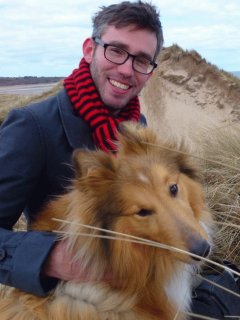This year’s joint QRCA/AQR conference focused on the theme of Qualitative Transformations: both the changes the industry helps others attain and its own evolution. And, given that context is all for us quallies, where better to hold the event than in Dublin, capital of Europe’s fastest growing economy?
The two introductory papers tracked the development of the Celtic tiger, both economically and attitudinally, with Alan Sheehy-Skeffington’s Act First, Research Later highlighting the fatalistic, self-deprecating mentality of the Old Ireland. Mark Henry’s Transforming Perceptions of Ireland, meanwhile, highlighted the determination of New Ireland to seize control of its own destiny by rethinking its brand values. Asking quallies to do the same may seem like a tall order, but this event was certainly a step in the right direction.
Pulling together 180 delegates from 22 countries was an achievement in itself, and among all the talk of transformation I noticed a refreshing change to the overall tone of papers. Usually such papers tend to fall into two distinct categories: the theoretical and the practical. Each of us has our preferred sort, and given the steely look I was given by a veteran QRCAer for challenging the tradition of case studies in the Harvard model, I don’t think there’s ever likely to be a consensus.
This time round, however, the papers tended to encompass the best of both worlds. Those led by theory were usually supported by relevant examples proving the usefulness of new thinking in the real world; and those led by case studies avoided the ‘so what?’ factor by introducing some new methodologies and approaches to research problems.
Constructivism was a hot topic this year, with Sheila Keegan’s winning paper on Emergent Enquiry reminding us powerfully that reality is constructed rather than absolute. Dimitri Schmitow took the argument a step further in Constructivism and Research, drawing very effectively upon the archetypes of Reporter, Artist and Interpreter to highlight the pitfalls of merely capturing facts or constructing our own versions of consumers’ reality. Both were supported by powerful visuals, and for me were the highlight of the daytime sessions.
Several case study examples also impressed, with Ugo Geri-Robert’s MR in Emerging and Transitional Markets and Lee Kotze’s African Shrine providing a seamless account of the dangers of underestimating consumers in developing markets and the value of ethnography in understanding behaviour in unfamiliar settings.
Hy Mariampolski and George Zinkhan’s Using Childhood Memories to Transform QR gave us a tantalising account of using a range of methodologies to access ‘hardwired’ attitudes to brands formed early in life. Tom Peck’s Wake Up and Smell the Coffee, an account of inviting the UK McDonald’s CEO into the heart of the research process, was unlikely to shift the opinions of the brand’s detractors, but illustrated — among other things — the positive PR which emerged from bringing board members face-to-face with customers and frontline staff.
So, what transformations are really taking place in the qualitative research world? I’m not sure I heard any ground-breaking new theories in Ireland, but the evidence suggested that the industry is starting to construct a tangible reality out of some emergent theories. At least I came away with plenty of inspiration and a feeling that the industry is moving in a healthy direction.
Many papers reflected Dee Chalmers’ assertion that we should “hold onto the thinking but be flexible with the process” in her paper on Changing to Stay the Same. In practical terms, this sometimes meant a considered and thoughtful approach to ethnography which has often been lacking in over-enthusiastic endorsements of the method.
Edeltraud Kautenbach’s Increasing the Authenticity of Ethnographic Research, for example, helped to address many of the fears surrounding observer effect by proving the effectiveness of using fixed, automatically activated cameras for in-home studies. In other cases it meant a wholehearted embracing of bricolage (now apparently referred to as triangulation): mixing ethnographic and traditional approaches to capitalise on the benefits (and accept the limitations) of both.
Inevitably the choice of location resulted in a lively social scene. Those unfamiliar with the craic were subjected to a crash course at the Gravity Bar at the Guinness Storehouse, which, with its ultra-modern design set atop a historic building and panoramic views over the city, expresses the heart of the new Ireland beautifully.
The dine-a-rounds were, as ever, a terrific success, and, augmented this time by the inevitable pub crawl gave AQR and QRCAers alike the chance to socialise and network over several jars of the dark stuff, a powerful force for transformation in its own right. Many thanks to Kendall, Peter and the two committees for a memorable event.


